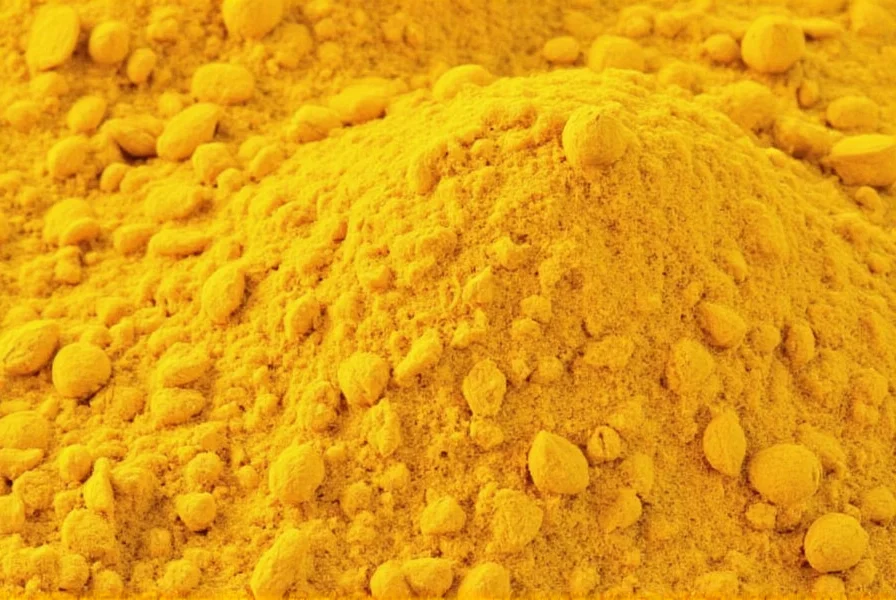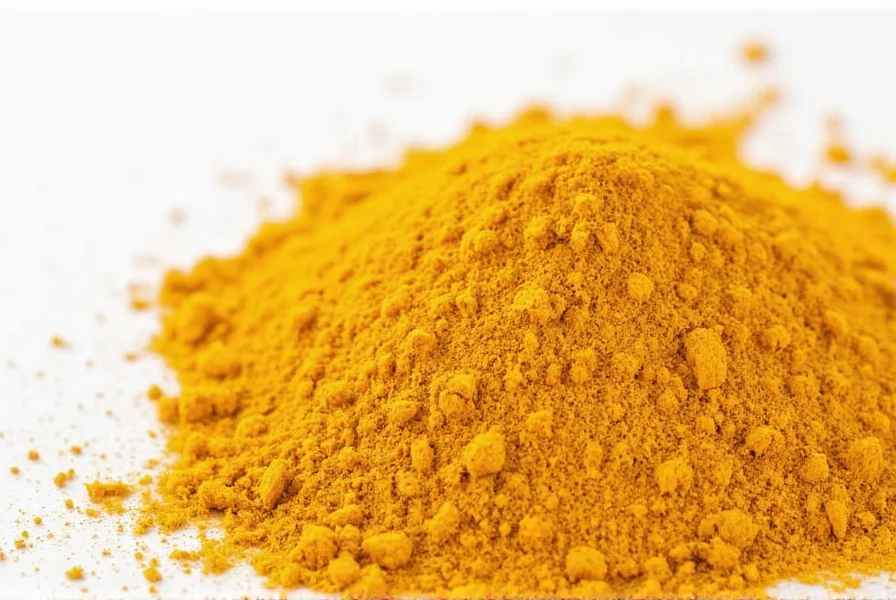Yes, turmeric does go bad eventually, though it has an impressively long shelf life when stored properly. Ground turmeric typically remains potent for 2-3 years, while fresh turmeric root lasts 1-2 weeks in the refrigerator or up to 6 months frozen. The key signs of spoiled turmeric include faded color, weak aroma, clumping, and mold growth.
Understanding turmeric's shelf life is essential for both culinary excellence and maximizing health benefits. This vibrant spice contains curcumin, its active compound responsible for many health properties, which gradually degrades over time. While expired turmeric won't necessarily make you sick, it loses potency and flavor, diminishing both your dishes and potential wellness benefits.
How Long Does Turmeric Last?
The shelf life of turmeric varies significantly depending on its form and storage conditions. Properly stored turmeric maintains its quality much longer than improperly stored spice. Let's examine the different forms:
| Turmeric Type | Pantry Storage | Refrigerator Storage | Freezer Storage |
|---|---|---|---|
| Ground turmeric | 2-3 years (in airtight container) | Not recommended | 3-4 years |
| Fresh turmeric root | 1-2 weeks (in cool, dark place) | 3-4 weeks (in vegetable drawer) | 6-8 months (peeled and frozen) |
| Turmeric paste | 1 week (refrigerate after opening) | 3-4 weeks | 6 months |
Signs Your Turmeric Has Gone Bad
Recognizing when turmeric has expired ensures you're using a quality product. Here are the definitive signs that your turmeric has passed its prime:
Visual Indicators of Spoiled Turmeric
Fresh turmeric root should have a vibrant orange-yellow color with smooth, taut skin. Discard turmeric showing these visual red flags:
- Significant darkening or grayish discoloration
- Visible mold growth (white, green, or black spots)
- Excessive wrinkling or shriveling
- Soft, mushy spots indicating rot
For ground turmeric, look for:
- Faded color (should be bright golden yellow)
- Clumping that doesn't break apart easily
- Visible moisture or condensation inside the container
Sensory Indicators: Smell and Taste
Fresh turmeric has a distinctive earthy, slightly bitter aroma with citrus and ginger notes. Expired turmeric often exhibits:
- Weakened or nonexistent aroma
- Sour or musty smell
- Stale or cardboard-like odor
When tasting a small amount of questionable turmeric:
- Fresh turmeric has a warm, peppery flavor with slight bitterness
- Expired turmeric tastes flat, bland, or noticeably less pungent
- Off flavors indicate spoilage

Maximizing Turmeric Shelf Life: Proper Storage Methods
How you store turmeric dramatically impacts its longevity and potency. Follow these evidence-based storage recommendations:
Storing Ground Turmeric
For optimal shelf life of ground turmeric:
- Keep in an airtight container away from light, heat, and moisture
- Store in a cool, dark cupboard (not above the stove or near dishwasher)
- Maintain consistent temperature (fluctuations accelerate degradation)
- Use glass containers rather than plastic to prevent flavor absorption
Preserving Fresh Turmeric Root
Fresh turmeric requires more careful handling:
- Refrigerate whole, unpeeled roots in the vegetable drawer
- Wrap roots in paper towels before placing in perforated plastic bags
- For longer storage, peel, slice, and freeze in airtight containers
- Submerging fresh turmeric in vodka creates a preservation method lasting months
Health Implications of Using Expired Turmeric
Many home cooks wonder: can expired turmeric make you sick? The answer depends on the condition of the spice.
Ground turmeric that has simply lost potency (faded color, weak aroma) but shows no mold or moisture is generally safe to consume, though it provides minimal flavor and health benefits. However, turmeric showing mold growth, unusual odors, or moisture contamination should be discarded immediately as it may contain harmful mycotoxins.
Research shows that while turmeric doesn't become toxic when expired, its curcumin content degrades significantly over time. A study published in the Journal of Food Science found that ground turmeric stored for 3 years at room temperature retained only 40% of its original curcumin content. This means expired turmeric won't deliver the same anti-inflammatory benefits as fresh spice.

Reviving Slightly Stale Turmeric
If your turmeric has lost some potency but shows no signs of spoilage, you can enhance its flavor:
- Toast ground turmeric in a dry pan for 30-60 seconds before use
- Bloom turmeric in warm oil to release remaining essential oils
- Combine with black pepper (piperine increases curcumin absorption)
- Use slightly larger quantities to compensate for diminished potency
However, these methods won't restore turmeric that has significantly degraded or shows visible spoilage signs.
When to Replace Your Turmeric
Follow these guidelines to determine when it's time to replace your turmeric:
- Ground turmeric stored more than 3 years, even with proper storage
- Fresh turmeric showing mold, excessive softness, or foul odor
- Turmeric that fails the smell test (little to no distinctive aroma)
- Spice that consistently produces bland results in recipes
For maximum health benefits, consider replacing turmeric annually even if it shows no obvious signs of spoilage, as curcumin content gradually degrades beyond sensory detection.
Frequently Asked Questions
Can you get sick from expired turmeric?
Pure turmeric that has simply lost potency (no mold or moisture) won't make you sick but provides minimal benefits. However, turmeric with visible mold, unusual odors, or moisture contamination should be discarded as it may contain harmful mycotoxins that could cause illness.
How can you tell if fresh turmeric root has gone bad?
Spoiled fresh turmeric shows significant discoloration (gray or black spots), soft or mushy areas, excessive wrinkling, mold growth, or emits sour/musty odors. Properly stored fresh turmeric should feel firm with smooth skin and have a vibrant orange color.
Does turmeric lose its health benefits over time?
Yes, turmeric gradually loses its curcumin content—the compound responsible for most health benefits—over time. Studies show ground turmeric stored for 3 years at room temperature retains only about 40% of its original curcumin. Proper storage in cool, dark conditions slows this degradation.
Can you freeze turmeric to extend its shelf life?
Yes, freezing significantly extends turmeric's shelf life. Peel and slice fresh turmeric root, then freeze in airtight containers for 6-8 months. Ground turmeric can be frozen in its original container for 3-4 years, though this is generally unnecessary if stored properly at room temperature.
Why does my turmeric clump together?
Clumping usually indicates moisture exposure. While small clumps can be broken apart and the turmeric remains safe, large hardened clumps suggest significant moisture contamination, which can lead to mold growth. Always store turmeric in an airtight container in a cool, dry place to prevent clumping.










 浙公网安备
33010002000092号
浙公网安备
33010002000092号 浙B2-20120091-4
浙B2-20120091-4